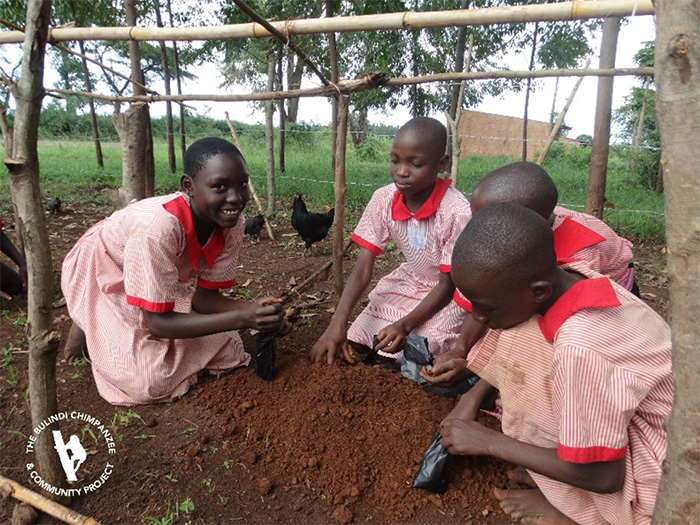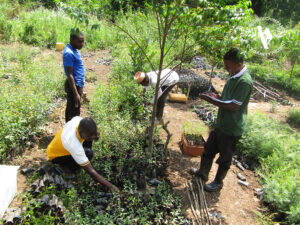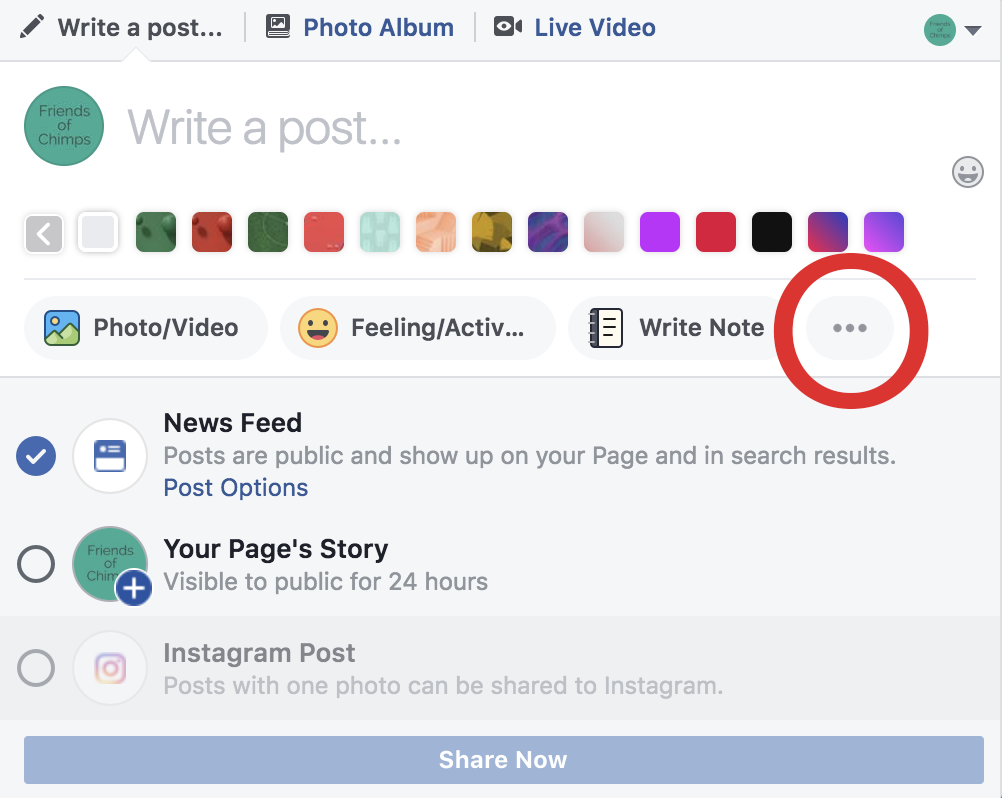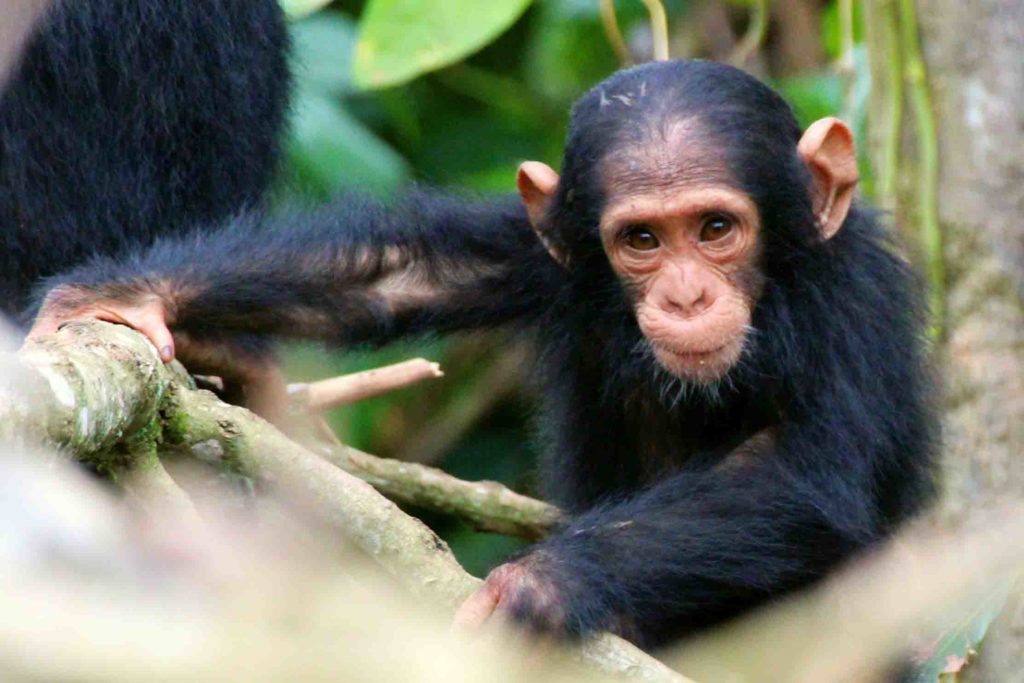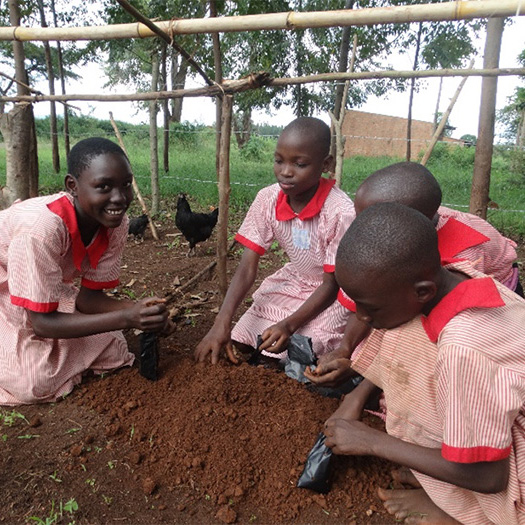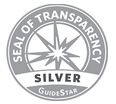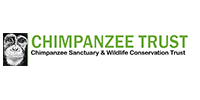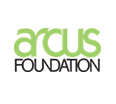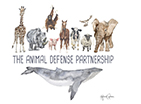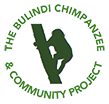Meet a Chimp Champ: Animal Defense Partnership
As a small, largely volunteer-based non-profit we rely on the generosity and expertise of people in fields ranging from design, law, accounting, and technology. We felt it was time to start introducing you to these amazing people, our chimp champions!
In this first post of our new series we’d like you to meet the founders of the non-profit, Animal Defense Partnership, David Ebert and Joel Litvin, career attorneys who now dedicate their significant legal expertise, pro bono, to animal protection organizations. These are two super cool humans, so enjoy reading their story! (Note, all answers are from David).
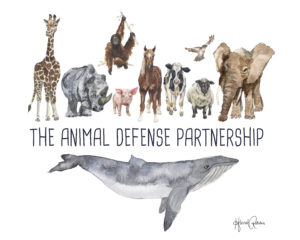
1) What was your inspiration for focusing on animal protection?
The more aware I became over the years of our animal-directed awfulness, the more unsettled I became doing nothing about it. At 56 (in 2016), it was getting a bit late to go back to school to study primatology or work with elephants and rhinos as a behavioral scientist. So, I spent some time thinking through other ways in which I could participate and contribute and, having practiced for 30+ years, lawyering was the obvious vehicle.
Prompted by my wife, in 2016 I started contacting AR organizations offering to provide free legal services, which proved to be quite the easy sell. I very quickly became busy with pro bono work (while at the same time maintaining a full-time for-profit law practice), and it became clear that I needed a structure and help. I remarked to a friend that I was considering forming what was to become ADP and she mentioned that Joel was deeply interested in animal causes.
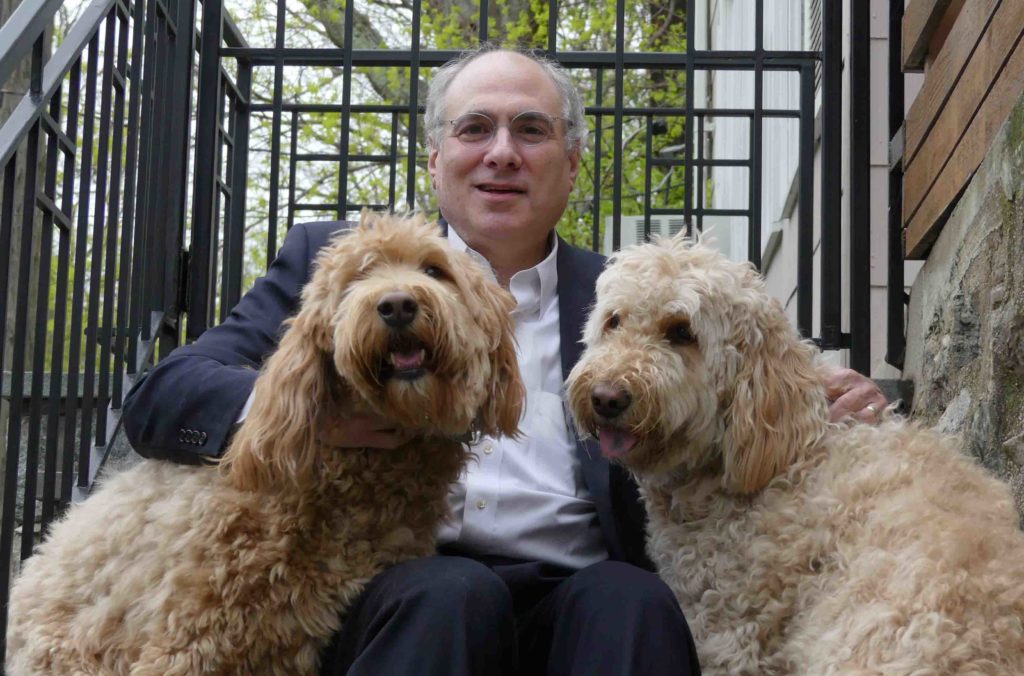
David Ebert with dogs, Frieda and Mo.
2) When did your love of animals begin and was there a specific animal experience that sparked your commitment?
It’s always been there. Always. I was six when Born Free came out, and it just destroyed me. I could barely get through it. I was jealous of the kid who, after being blinded by an errant firecracker in the Scholastic Book Follow My Leader, got to have a service dog (I wasn’t terribly concerned about the kid, but worried throughout the entire book that something horrible would happen to the dog). There were the Lad: A Dog and Old Yeller books, from which I still haven’t fully recovered. Zoos demoralized me. I was taken to Sea World when I was 8 or 9 and, for reasons I didn’t quite understand at the time, it left me disquieted.
Gorillas in the Mist was huge for me. It led me to the work of Jane Goodall, Dian Fossey and Biruté Galdikas. I became interested in reading animal studies and journals. The title When Elephants Weep alone, a book about the social and emotional lives of animals, was deeply affecting. In 2011 Born to Be Wild, a 3D documentary about orphaned orangutans (Dr. Galdikas) and elephants (Daphne Sheldrick) was released in theaters and I went back to see it I don’t know how many times. It was then I decided I would find a way to spend some time with orangutans, elephants and gorillas. Those are just a few of many, many connections over the years. And, as with so many others, Animal Liberation, opened my eyes wide on the factory farming front and got me to give up consuming beef and chicken in my mid-twenties, and later fish and finally all animal products.
3) Tell us a little about how you ended up forming ADP together.
Joel and I live in the same town, shared a train platform from time to time and had coached our daughter’s basketball teams against one another (he says he trounced my third graders in a playoff game, of which I have no recollection). I hadn’t had much direct contact with Joel but knew him to be very well-regarded personally and highly-accomplished professionally. (We went to the same undergraduate and law schools, a year apart, without knowing each other.) I contacted him and set up a meeting at what would become our first office – the Dobbs Ferry Diner. We officially launched ADP a few months later.
We were fortunate to be introduced early on to Allan E. Kornberg, MD, MBA, who is now our board chair. Allan, a pediatrician, served as the U.S. Executive Director of World Animal Protection and Executive Director of Farm Sanctuary and is the current board chair of the Global Federation of Animal Sanctuaries. He has been instrumental in helping us define and focus our mission and forge relationships with a number of leading animal protection advocates.
4) David, you saw mountain gorillas in Rwanda in 2016, can you describe that experience?
Actually, no, I can’t. I’ve tried and failed so many times to capture that hour with them that I’ve given up. It was truly a life altering, indescribable experience. It had been something I had thought about for a very long time and it always seemed completely unattainable. Until the moment I saw them, I didn’t quite believe I ever would. From the excitement and anticipation, I did not sleep AT ALL the night before. Between the deep fatigue and modest altitude change, I couldn’t get my breath and had a concerning amount of difficulty keeping up with the group on the trek to the gorillas (the Hirwa group). I clearly recall thinking, less than half-jokingly, “I’m going to see these gorillas or die trying, and hopefully in that order.”
Seeing the first few of them, and then all of them, made my whole being gasp. Shortly after we settled in, two babies, one after the other, ran toward me and hit my shins as they passed, which was an incomparable thrill. A little while later, I was crouched down and an older one started heading over to me from 10 yards away and, as he passed by me he stopped and tapped my side three times. No words.
Watching the adolescents play, wrestle and annoy each other, a mother nursing an infant, the group’s enormous silverback sitting and staring at us, the chest beating, the freestyle aerial displays, the interactions between the guides and the gorillas…It was just an extraordinary opportunity and experience. Thankfully, it’s all still quite vivid, with no signs of letting up. And it inspired an even deeper commitment and sense of urgency to make ADP a viable contributor to the cause.
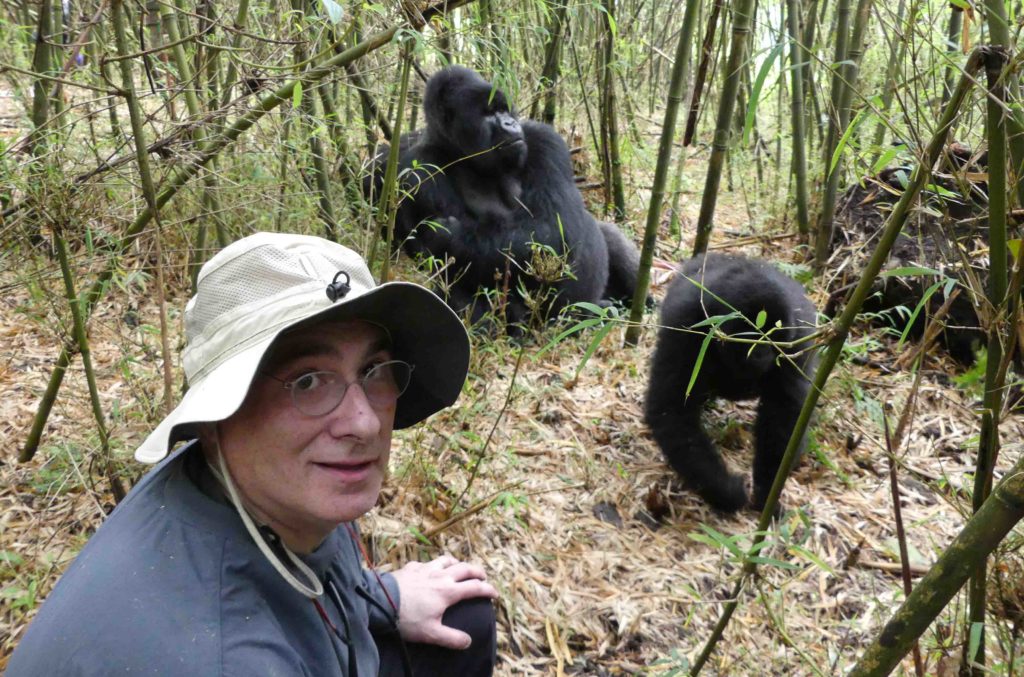
David with mountain gorillas in Rwanda, 2016.
5) It seems that you are a dog person and Joel is a cat person, how do you work through this difference?
Well, at least we’re politically aligned. Dogs and cats aside, we work extremely well together. We bring different strengths and experiences to this (but, oddly enough, all the same weaknesses). Joel was General Counsel and then President, League Operations of the National Basketball Association, serving 27 years with the league. From this experience, in addition to his considerable legal skills, Joel has a very firm grasp on what goes into developing, running and maintaining a mission-driven organization, which serves our clients quite well. Through my experience, I know how to anticipate, avoid and fix client problems and, when all else fails, sue The Bad Guys. Allan is very much hands on and involved in all decision-making and has taught us a tremendous amount that would have taken much time and many mistakes to figure out ourselves. Last year we brought on our very smart and capable first employee, Dylan Kornberg, our Director of Operations. All decisions are made by consensus, and so far, we’ve reached consensus on everything we’ve needed to decide.
6) Is there any useful advice you wish every animal protection organization would follow?
We have a growing list of terrific clients and the issues and questions are quite varied. It sounds like a sales pitch (for free services?), but mostly our goal is to get our clients in the habit of contacting us early on when they’re struggling with an issue before decisions are made or action is taken. I like to think we do both effectively, but it’s always easier to avoid problems than to fix them.
7) In an ideal future, what would be your vision for the results of your work and the protection of animals around the world?
We’d like us to build an organization that animal rights, welfare and protection organizations rely on to obtain the absolute highest quality legal and professional services available. Joel and I can only do so much ourselves, and we have quickly developed a network of superb and very enthusiastic lawyers and top-tier law firms to help us as needed. If by providing these “back office” services we can enable our clients to devote more of their energy and resources to their extraordinary work directly on behalf of the animals, I feel like we’re on the right track. Long-term, I’d like us to build a resource that continues beyond our involvement and becomes a staple in the animal protection community. And, in an ideal, ideal future, our clients’ services would no longer be needed, and neither would ours.

